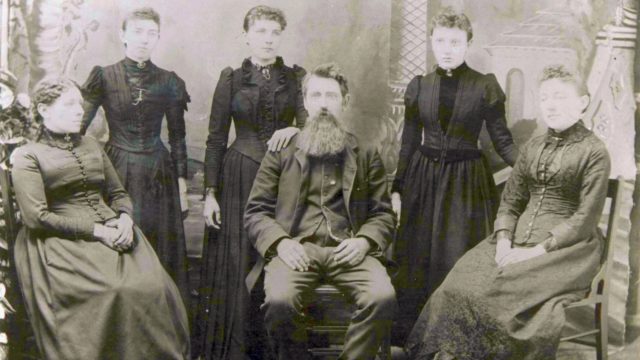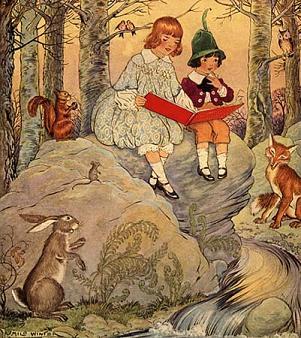The Extraordinary Education of Nicholas Benedict
 I loved The Mysterious Benedict Society, but I haven’t read any of the other books in the series. It had its magic, and when it was over, I didn’t want to risk the sequels. You know what I mean.
I loved The Mysterious Benedict Society, but I haven’t read any of the other books in the series. It had its magic, and when it was over, I didn’t want to risk the sequels. You know what I mean.
But the audiobook of the month around here is, yes, The Mysterious Benedict Society. The girls have also listened to Prisoner’s Dilemma. They’ve been big hits, big enough to make it into the family vernacular. Unfortunately it’s Constance’s rhymes that pop up most often, and Constance’s character in the books is lovable for her orneriness. Nevertheless, I’m glad to see the girls enjoying them so much.
When I saw The Extraordinary Education of Nicholas Benedict on the library shelf, I decided to give it a go myself, and I don’t regret it. A prequel to the other Benedict Society books that purports to give us Mr. Benedict’s backstory, this novel offers us a 9-year-old genius with a large nose and a sleeping disorder who is transferred to a new orphanage at the beginning of the story. His adventures resemble those of the band of child geniuses in The Mysterious Benedict Society as he searches for missing treasure and works to solve various puzzles.
But in the same way the initial novel included enough emotional realism to be engaging, so Nicholas’s struggles with a trio of bullies called the Spiders, his feelings of isolation, and his efforts to cope with an almost entirely loveless situation take the story’s fantastical fare and link it recognizably to the larger human story. I somehow did not expect to be moved by the book, but it startled me more than once by tugging at my heartstrings.
Trenton Lee Stewart writes a well-paced and intriguing story, and his protagonist is totally likable, however unbelievable his superhuman brilliance seems. But Stewart also manages to create moments of real beauty in these pages. I’ll include one of my favorites. In this scene, young Nicholas is presented with a portrait of himself, drawn by his newfound friend Violet. I love the way the passage describes the picture and captures its effect on Nicholas:
The boy on the bluff sat with his legs dangling over the edge, gazing up at the sky. He was rendered in fine detail, as if well lit — and indeed he had been, by that enormous moon, although Violet had not included the moon in the drawing. She must have terrific eyesight, Nicholas thought absently, but a greater part of his mind was considering the implications of the drawing and what Violet had said about his character.
Like Nicholas, she had been awake late at night, almost certainly alone as she gazed out at the moonlit world. Had she felt a kinship with him before they ever met? Who had she thought him to be? What kind of boy was the boy on the bluff?
Staring at the drawing, Nicholas became aware of a curious feeling welling up in him — curious and very powerful. He found that he did not want to disappoint this girl, to disillusion her. He wanted to be whoever Violet had thought he was, sitting on that rock in the night.
I love the way the passage doesn’t condescend at all to its young audience as it sketches out the inspiring effect of faith. Most of us have had this feeling before — of being believed to be better than we think we are, and wanting to rise to the occasion. The friendships that create this kind of response in us are the most life-giving ones, and I think it’s wonderful that a scene like this offers such good food for thought to young readers.
The scene becomes thematically central in the book too, as Nicholas’s “extraordinary education” is largely a process of humanization, and growing awareness that he has more to offer the world than just a brilliant mind. In this sense I found it to be a satisfying prequel that helped to explain not just Mr. Benedict’s great mind, but his great heart.



5 Comments
Alice@Supratentorial
My oldest and I are reading this together as his before bed book. I am really liking it so far, and am glad to read your review. Sounds like we have a lot to look forward to.
Amy
I confess to having only read the first in the series. I loved it, but I have a bad record with sequels. Maybe I’ll give this one a shot–you make it very appealing!
Susan (Reading World)
My kids really enjoyed this series. They are a bit older now, so I was surprised that they were interested in this book when they saw it in the store. We didn’t buy it when we first saw it, but I suspect we will. I’m glad to hear it’s worthwhile!
Barbara H.
I read the first book in the series, too, and enjoyed it, but not enough to seek out the sequels or this one. But I might change my mind. :-) The audiobook version might work well since I have so many other paper books stacked up and waiting.
Carrie, Reading to Know
Well, I’ll just go on grinning…